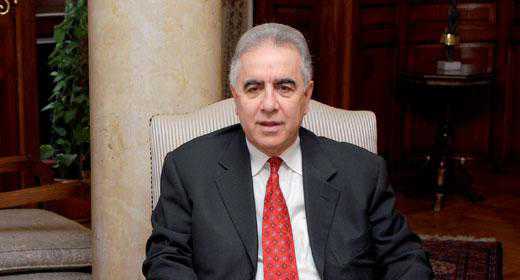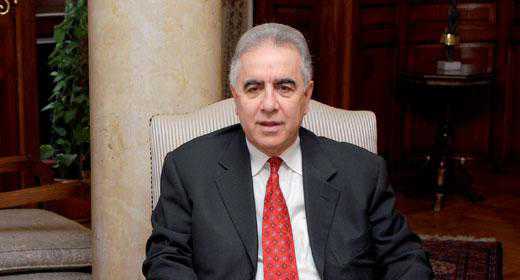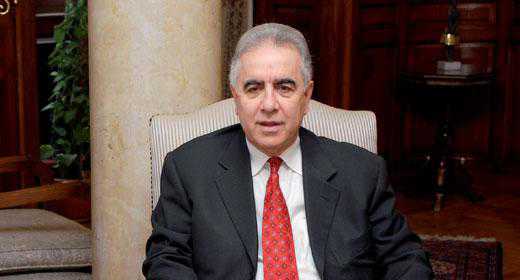
The Turkish government has recently embarked on an aggressive campaign, pressuring a large number of European and American museums to return antiquities that were taken out of the country during Ottoman times.
While it is understandable that nations would want to recover ancient relics that were part of their patrimony, in the Turkish case there are certain anomalies that merit closer scrutiny.
If these valuable relics were taken out of Turkey in recent times without proper authorization, one could argue that the Turkish government is perhaps entitled to them, even though they emanate from ancient civilizations that predate the conquest of that part of the world by Ottoman Turks.
It is ironic that the country claiming these antiquities is one of the history’s biggest looters and pilferers of other nations’ cultural heritage such as churches, monasteries, monuments, and schools belonging to Armenians, Assyrians, and Greeks. One must have clean hands before having the audacity of accusing others of theft.
Most shocking of all, the Turkish government is preparing a lawsuit against the British Museum in the European Court of Human Rights based on Article 1 of the First Protocol of the European Convention on Human Rights which states: “Every natural or legal person is entitled to the peaceful enjoyment of his possessions.”
According to an article by Ceylan Yeginsu in the International Business Times (IBT), using human rights laws to recover antiquities is a novel concept never before used by any country. It is incredible that one of the biggest violators of human rights in the world is getting ready to sue the British Museum ostensibly for violating the rights of Turkish citizens.
Turkey is planning to file this lawsuit on January 30 to reclaim the Mausoleum of Halicarnassus, “one of the Seven Wonders of the ancient world.” The British Museum, however, argues that it had not misappropriated this ancient relic. Olivia Rickman, press and PR manager of the Museum, told IBT that the sculptures from the Mausoleum of Halicarnassus in the Museum’s collection were acquired in 1846, 1857 and 1859. Rickman further states that “these pieces were acquired during the course of two British initiatives, both with firmans [legal permits issued by the Ottoman authorities] that granted permission for the excavation of the site and removal of the material from the site (1857 and 1859) and Bodrum Castle (1846) to the British Museum.”
IBT quoted Charlotte Woodhead, an expert in cultural heritage law at the University of Warwick in England, stating that she was not aware of human rights legislation ever being used before to reclaim such objects. “If a claim is brought before the European Court of Human Rights, it will be interesting to see on what basis it is argued and also to see what the outcome is,” Woodhead stated.
Turkey has also used an Ottoman law banning the export of artifacts in order to claim ownership of ancient artifacts from major museums around the globe, such as the Louvre in Paris, the Getty in Los Angeles, New York’s Metropolitan Museum of Art, the Cleveland Museum of Art, and Harvard’s Dumbarton Oaks. If Turkey can claim Ottoman-era assets, then it must be held responsible for Ottoman-era liabilities such as plunder, territorial conquest, and genocide!
By filing such questionable lawsuits, Turkey’s real intent is to intimidate foreign museums into returning the claimed artifacts. If the museums do not cave in to Turkish pressure and refuse to turn over these items, it would be interesting to see if the Turkish government would still go ahead with its threatened lawsuits. The big risk for Turkey is that if the courts reject its claims, no museum would ever agree to return any of the demanded antiquities.
However, should a foreign museum wish to return an ancient relic to Turkey, it should make it conditional on the Turkish government officially identifying the true origin of the object, such as Hittite, Roman, Greek, Armenian or Assyrian. This is necessitated by the fact that Turkey has omitted all references to the origin of ancient Armenian churches and monuments from inscriptions presently affixed to the entrance of these sites.
Turkish efforts to reclaim antiquities from the world’s great museums provide a unique opportunity for Armenians to publicize the Turkey’s misuse and outright destruction of thousands of Armenian churches, monasteries, schools, cemeteries and castles.
Armenians should petition the European Court of Human Rights, objecting to the return of any artifacts to Turkey, unless its government makes a legally binding pledge to preserve and identify all remaining Armenian monuments on its territory. The next step would be to demand that Turkey return the more than 2,000 churches to the Armenian Patriarchate of Istanbul.






